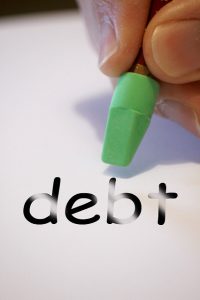If you cannot pay all of your bills and debts, you should think carefully about which debts should be paid first, last, or not at all. There are some general rules to follow when deciding which bills to pay first.
By: Hitesh Khan/
Which debts and bills should be paid first?
When deciding which debts or bills to pay first, the most important thing to remember is that the creditor who is the meanest or makes the most threats is not necessarily the one you should pay first. Creditors that don’t have a guarantee of repayment (unsecured creditors) will often try to scare you into paying them first. However, the creditors you should worry about first are creditors who can take quick action against your home, utility service, or other valuable property.

What is secured debt and unsecured debt?
Secured debt is a debt that is secured or guaranteed by a piece of property. This property is called collateral. Loans to buy a car or home are good examples of secured debt. When you get this kind of loan, the lender (creditor) gets a security interest in the collateral. This means he can take and sell the property if you don’t repay the debt. Secured creditors can be sure to get at least partial repayment of the loan because they have the ability to take and sell the collateral if you don’t pay. You should almost always try to pay these debts first. If you don’t pay them, you may lose valuable property.
Unsecured debt is debt that is not secured or guaranteed by collateral. In the case of unsecured debt the creditor cannot take anything from you without going to court first. Credit card debt, medical bills, and other loans without collateral are all examples of unsecured debt. The only way a creditor can collect this type of debt is by taking you to court. Creditors usually go to court as a last resort because it is expensive to do so. You should almost always pay unsecured debts after you pay secured debts.
I don’t have money to pay all of my bills and debts. Which debts and bills should I pay first?
Table of Contents
- Family necessities. Family necessities must be taken care of first. They include food and current medical care. Do not pay old medical bills first, unless you must in order to get current medical care.
- Rent or mortgage payments. Keeping rent or mortgage payments current is important. Failure to pay these types of debts can lead to the loss of your home and the money you have paid toward the purchase of your home (equity).
- Utility payments. Utility payments are also important. If you cannot pay the entire bill each month, then try to pay the smallest amount needed to avoid disconnection of your services. Disconnection can lead to many problems. If you get disconnected, you may have to pay a reconnection fee to get your utilities back.
https://www.icompareloan.com/resources/financial-crisis/
Which debts and bills should I pay last?
Unsecured debt, or debt not secured by collateral, such as credit card debt medical debt, should usually be paid last. The only way a creditor can collect on such a debt is by suing you in court. Usually creditors will only sue you as a last resort because it costs them so much money to do so.
Usually loans that use household goods as collateral should also be paid last. These debts are a type of secured debt, but usually the collateral is not as important as other bills or debts you need to pay. These debts should be paid only after more pressing debts. Also, creditors are hesitant to take and resell many household goods because of their low resale value.
https://www.icompareloan.com/resources/self-financing/
What debts should not be paid?
You should not pay debts that you have a good legal reason not to pay, until you are legally forced to do so. If you bought something and believe you were cheated or deceived, talk to a legal counsellor about how to fight for your rights. Also, do not pay debts that you don’t owe, unless you are legally forced to do so. Paying the debt can be an admission that you owe it.
Co-signed debts (or debts incurred as a result of personal guarantee) should be treated like your other debts. If you put up important property as collateral, treat it as a high-priority debt. If you didn’t, treat it as a low-priority debt.
How to Secure Personal Loans Quickly
If you are in a financial crunch and are searching for personal loans to expand your business, the loan consultants at iCompareLoan can set you up on a path that can get you a it in a quick and seamless manner. Our loan consultants have close links with the best lenders in town and can help you compare various loans and settle for a package that best suits your needs. Find out money saving tips here.
Our Affordability Tools help you make better property buying decisions. iCompareLoan Calculators help you ascertain the fair value of a property and find properties below market value in Singapore.
If you are looking for a new home loan or to refinance, our Mortgage brokers can help you get everything right from calculating mortgage repayment, comparing interest rates all through to securing the best home loans in Singapore. And the good thing is that all our services are free of charge. So it’s all worth it to secure a loan through us for your business expansion needs.
Contact us for advice on a new home loan.






